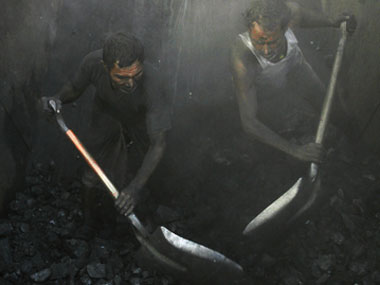Will The Children Investment Fund (TCI)’s battle against Coal India spark a mini-revolution of greater shareholder activism in public-sector companies?
Fingers crossed for that, because it’s about time someone pulled up (and thoroughly at that) the government for abusing state-owned companies. For too long, the interests of minority shareholders have been ignored in public-sector undertakings (PSU), which have typically operated according to the whims and fancies of government minister and ministries.
TCI, however, just might be about to change all that.
In the latest development, TCI, sticking to its threat, has initiated legal action against the Indian government for alleged breaches of international treaties over its investment in Coal India, according to Financial Times. The fund manager accuses the Indian government of directing Coal India to sell assets at below-market prices and obstructing the development of the business.
[caption id=“attachment_258224” align=“alignleft” width=“380” caption=“While TCI has a reputation for being an aggressive activist, its bold stand against Coal India has highlighted some long-standing problems with Indian PSUs. Reuters”]  [/caption]
The government is the largest shareholder in Coal India, owning 90 percent of the company. TCI is the largest foreign shareholder controlling close to 2 percent of shares.
In a letter sent to the ministry of finance on Tuesday, TCI said it was giving formal notice of a dispute under two bilateral trade agreements between India and the UK, and India and Cyprus (where TCI’s funds are domiciled), the newspaper said.
Impact Shorts
More ShortsIf a settlement is not reached within six months, the fund said, under the terms of the treaties, international arbitration would begin. Coal secretary Alok Perti, however, denied received a letter from TCI.
While TCI has a reputation for being an aggressive activist, its bold stand against Coal India has highlighted some long-standing problems with Indian PSUs.
For too long, government ministries have been exercising near-total control over state-run companies. The actual chairmen and chief operating officers of such entities rarely have any control over their companies. Key strategic decisions about what the company needs to do are taken by ministries and politicians. Even in other more day-to-day matters, ministers and bureaucrats meddle freely in companies that they view as personal fiefdoms (without any accountability to shareholders).
Indeed, Firstpost had said earlier that there are at least nine other public-sector undertakings – from ONGC and oil marketing companies to MTNL and LIC – whose shareholders should sue their boards and the government of India as promoter for lack of corporate governance.
At a conference hosted by Institutional Investors Advisory Services (ISS), a financial service provider under Morgan Stanley Capital International, on Monday, investors, foreign and local, agreed that heightened levels of shareholder activism could yield results, a Business Line report noted.
“The larger issue is that the government plays the role of regulator, majority shareholder and manager in PSUs. This needs to be set right,” said Shriram Subramanian, managing director of InGovern Research Services, at the conference, according to the newspaper.
Will TCI’s agitation become the catalyst to make that happen?


)

)
)
)
)
)
)
)
)



